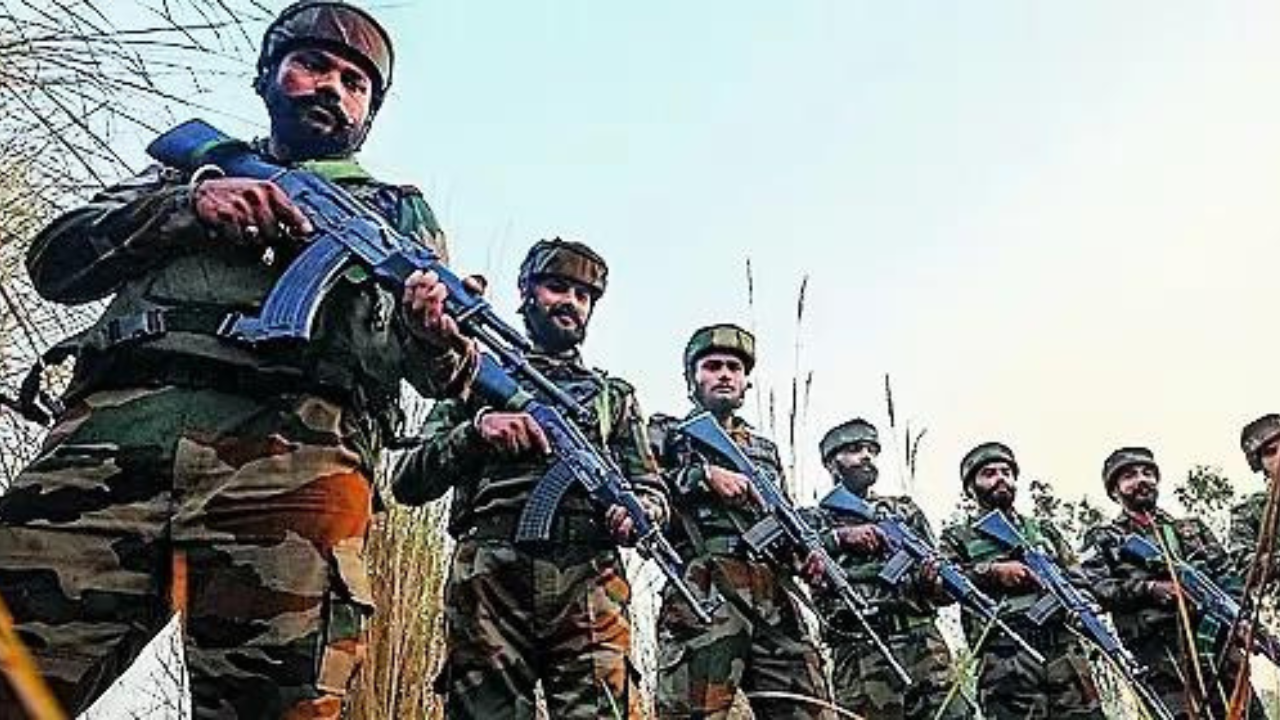NEW DELHI: The Centre on Sunday designated the Tehreek-e-Hurriyat (TeH), Jammu and Kashmir, a separatist outfit founded in 2004 by the late, pro-Pakistan Hurriyat ‘hawk’ Syed Ali Shah Geelani, as an ‘unlawful association‘ for a five-year period under the Unlawful Activities (Prevention) Act (UAPA), 1967.
Home minister Amit Shah said TeH was involved in “forbidden activities to separate J&K from India and establish Islamic rule in the Union Territory”. “The group is found spreading anti-India propaganda and continuing terror activities to fuel secessionism in J&K,” he posted on X.
Shah warned that “any individual or organisation found involved in anti-India activities will be thwarted forthwith” as part of the Narendra Modi government’s zero-tolerance policy against terrorism. Since 2019, 55 individuals have been proscribed as ‘terrorists’ and ‘unlawful association’ tag imposed or renewed against 17 organisations including Popular Front of India (PFI), Sikhs For Justice (SFJ), Jamaat-e-Islami Jammu & Kashmir and J&K Democratic Freedom Party.
The ban on TeH – currently led by incarcerated organiser of the stone-pelting protests of 2010 Masarat Alam Bhat – comes days after another group led by him, the J&K Muslim League, was labelled an ‘unlawful association’ under UAPA.
An MHA notification proscribing TeH said it “has been involved in fomenting terrorism and anti-India propaganda for fuelling secessionism in Jammu & Kashmir, which is prejudicial to the sovereignty, security and integrity of India”. It added that leaders and members of TeH were involved in raising funds through various sources, including Pakistan, and its proxy organisations for perpetrating unlawful activities, including supporting terrorist acts and sustained stone-pelting on the security forces in J&K.
The ministry said TeH members were paying tributes to terrorists killed in encounters with the security forces and that its members were involved in supporting terrorist activities “with an intent to create a reign of terror in the country, thereby endangering public order”. “TeH never believed in a democratic system of governance and its leadership gave repeated calls to boycott assembly elections on multiple occasions,” it said.
Incidentally, protest calendars issued by TeH chief Geelani in the aftermath of killing of Hizbul Mujahideen terrorist Burhan Wani in an encounter in 2016 had caused major protests and shutdowns in J&K.
Home minister Amit Shah said TeH was involved in “forbidden activities to separate J&K from India and establish Islamic rule in the Union Territory”. “The group is found spreading anti-India propaganda and continuing terror activities to fuel secessionism in J&K,” he posted on X.
Shah warned that “any individual or organisation found involved in anti-India activities will be thwarted forthwith” as part of the Narendra Modi government’s zero-tolerance policy against terrorism. Since 2019, 55 individuals have been proscribed as ‘terrorists’ and ‘unlawful association’ tag imposed or renewed against 17 organisations including Popular Front of India (PFI), Sikhs For Justice (SFJ), Jamaat-e-Islami Jammu & Kashmir and J&K Democratic Freedom Party.
The ban on TeH – currently led by incarcerated organiser of the stone-pelting protests of 2010 Masarat Alam Bhat – comes days after another group led by him, the J&K Muslim League, was labelled an ‘unlawful association’ under UAPA.
An MHA notification proscribing TeH said it “has been involved in fomenting terrorism and anti-India propaganda for fuelling secessionism in Jammu & Kashmir, which is prejudicial to the sovereignty, security and integrity of India”. It added that leaders and members of TeH were involved in raising funds through various sources, including Pakistan, and its proxy organisations for perpetrating unlawful activities, including supporting terrorist acts and sustained stone-pelting on the security forces in J&K.
The ministry said TeH members were paying tributes to terrorists killed in encounters with the security forces and that its members were involved in supporting terrorist activities “with an intent to create a reign of terror in the country, thereby endangering public order”. “TeH never believed in a democratic system of governance and its leadership gave repeated calls to boycott assembly elections on multiple occasions,” it said.
Incidentally, protest calendars issued by TeH chief Geelani in the aftermath of killing of Hizbul Mujahideen terrorist Burhan Wani in an encounter in 2016 had caused major protests and shutdowns in J&K.
